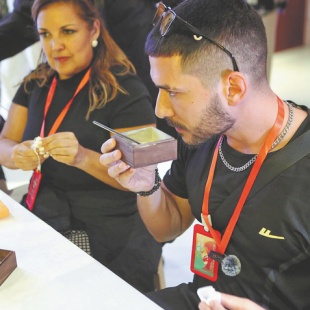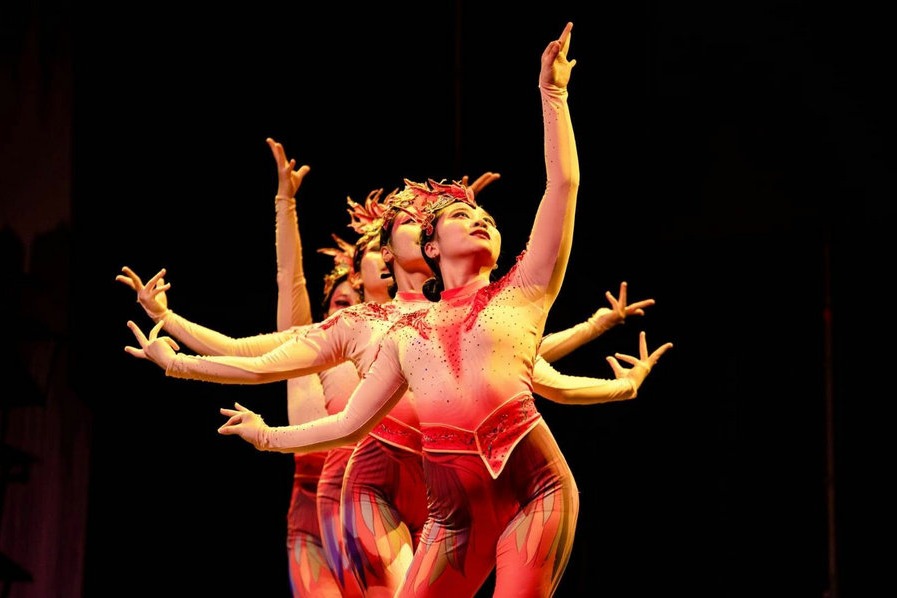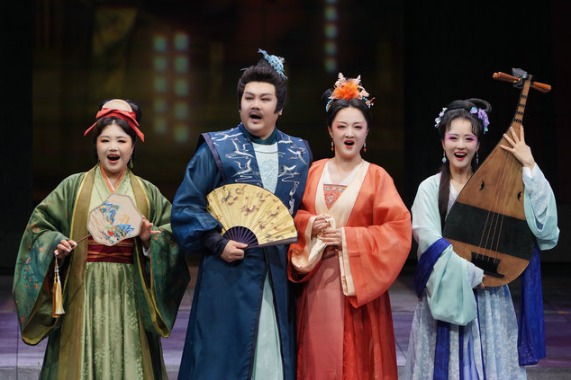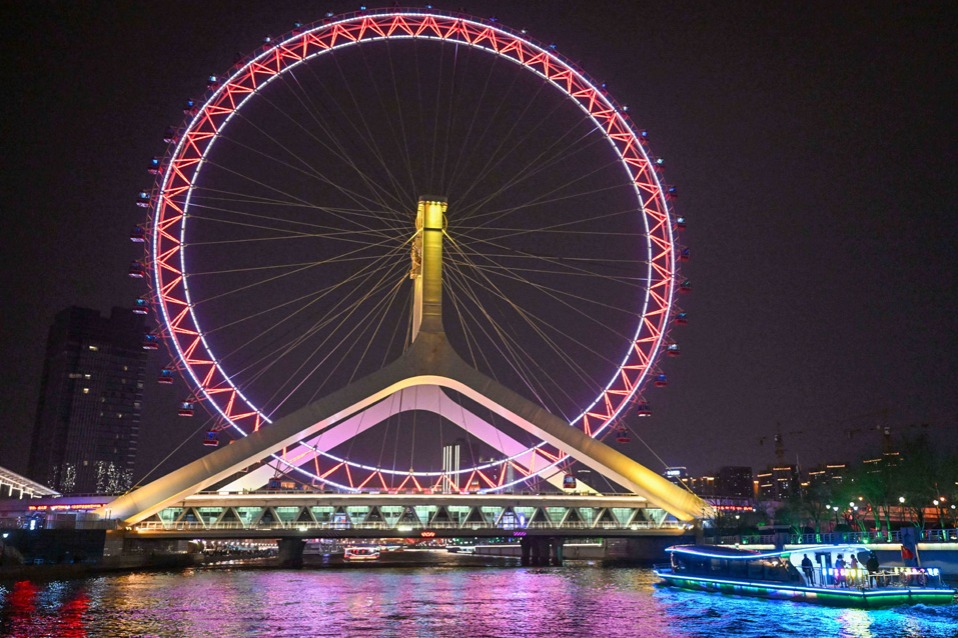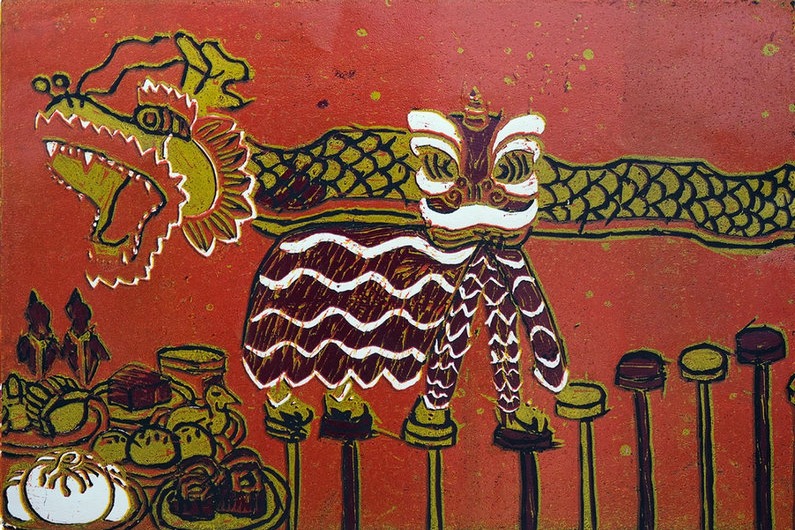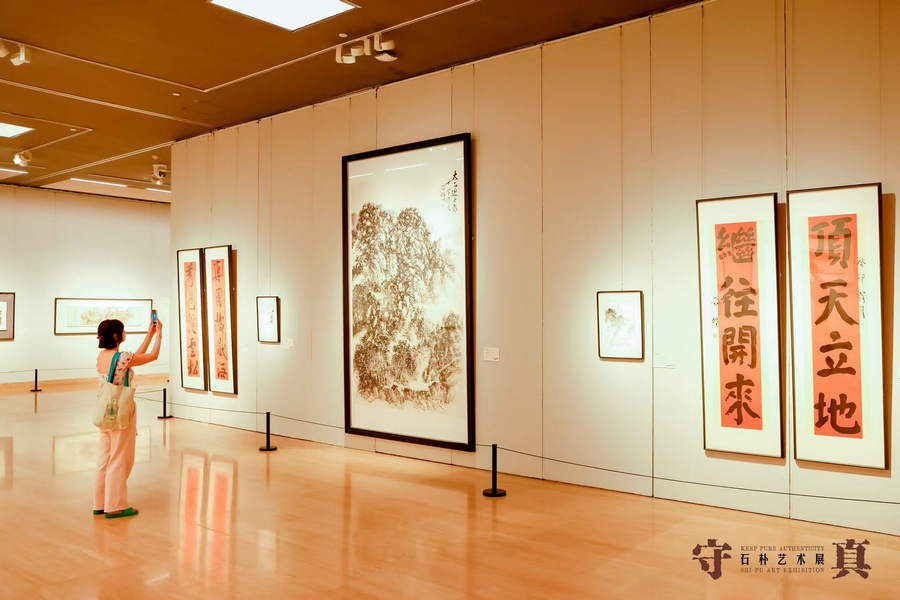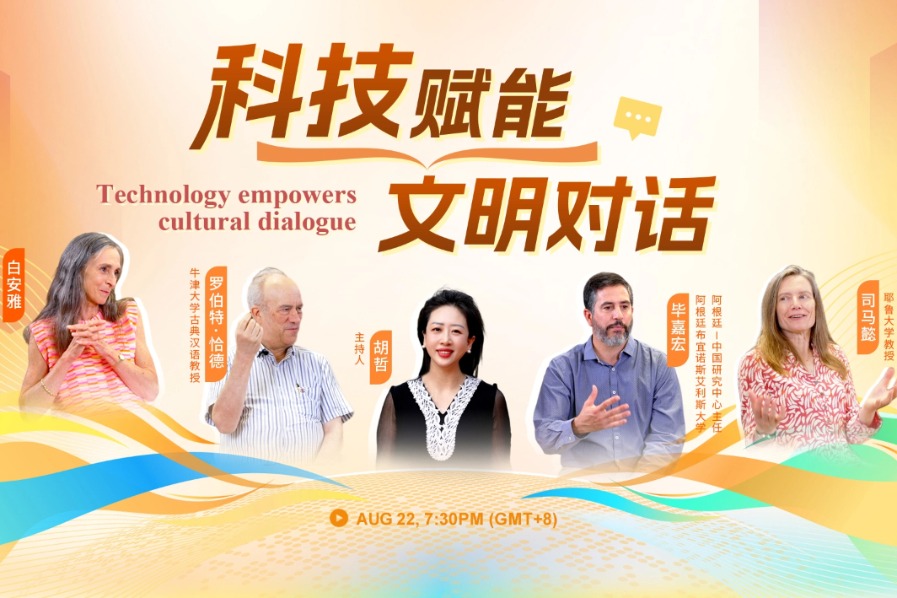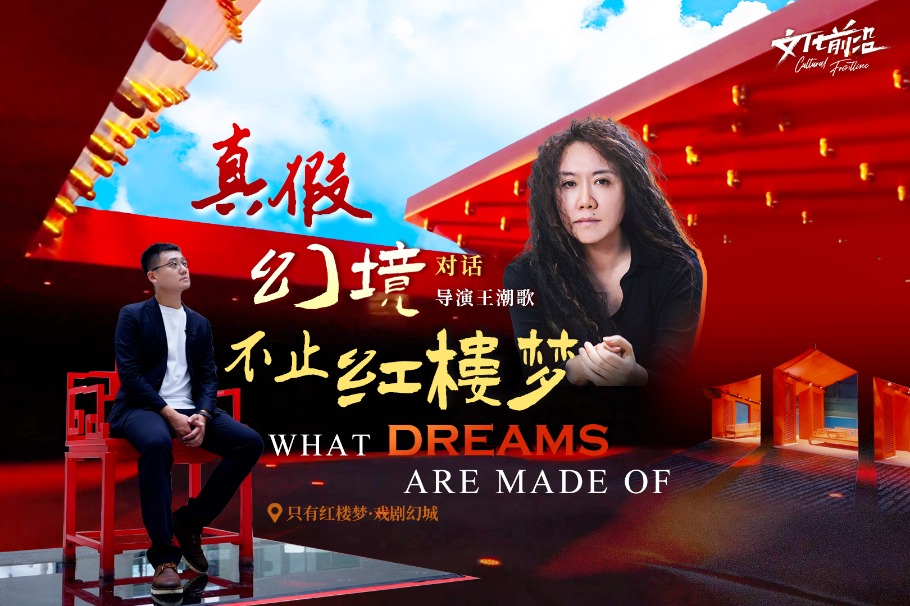Youths embark on journey to discover secrets of TCM

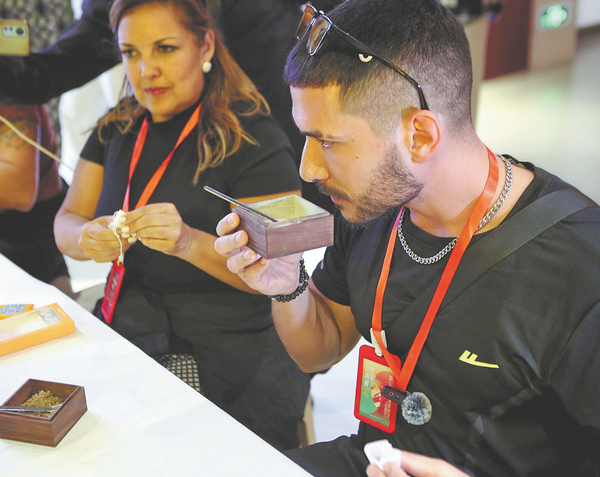
In a world where the wisdom of ancient traditions meets modern curiosity, a group of young delegates from around the world embarked on a journey to discover the secrets of one of the most classic prescriptions of traditional Chinese medicine, or TCM.
In December, more than 30 people from 10 countries, including the United States, Canada, Australia, Singapore, Brazil and Italy, set out to explore TCM by visiting the Pien Tze Huang Museum in Zhangzhou, Fujian province.
The name Pien Tze Huang derives from three characters: Pien means "a piece", tze an exclamatory particle in the southern Fujian dialect, while huang refers to "heat, toxicity, swelling, and pain". Together, they convey the meaning: A small piece will suffice to alleviate the condition of huang.
"Traditional Chinese medicine has a history of 5,000 years, embodying the wisdom and efforts of the Chinese people," says Andrea Randisi, an Italian social media influencer. After his visit to the museum, Andrea was astonished by the intricate history and culture behind the prescriptions of traditional Chinese medicine.
Pien Tze Huang, a prestigious Chinese proprietary medicine, is renowned for its potent effects in clearing heat, detoxifying the body, cooling the blood, resolving stagnant blood, and alleviating swelling and pain.
Davide Crocicchia, a young Italian athletics coach, was also among the delegates. He has a keen interest in traditional Chinese medicine due to its efficacy in treating illnesses and alleviating pain. In his view, herbal sachets are especially well-suited for athletes, providing relaxation and stress relief.
"It's fantastic that one can achieve relaxation without resorting to medication," he says. "This natural, gentle, and noninvasive approach to relaxation aligns perfectly with the needs of athletes."
Davide plans to introduce this concept in Italy and incorporate it into daily training, hoping to offer athletes a new method of physical and mental regulation.
Andrea has traveled extensively to Guangdong, Sichuan and Zhejiang provinces in China. With 80,000 international followers and 40,000 Chinese fans, he is eager to share his experiences. On his first visit to Fujian, he was deeply impressed by the province's profound historical and cultural heritage. He expresses his desire to encourage more people to visit Fujian and experience the charm of Chinese culture through his short video posts.
Ennzo Perasso Cenamo, a university student from Brazil, says: "My mother has a great interest in traditional Chinese medicine and Chinese tea, so I'm excited to bring these wonderful things back with me." He was eagerly looking forward to sharing his experiences and insights with his family and friends.
"I hope that through my sharing, more Brazilians can appreciate the charm of traditional Chinese medicine culture and rediscover its value," he says.
Residents of Fujian and Guangdong provinces would set sail from Yuegang Port in Zhangzhou to seek their fortunes in Southeast Asia, often carrying Pien Tze Huang for health protection during their arduous ocean voyages. The Maritime Silk Road, originating from this port, facilitated trade with nearly 50 countries and regions, making it a key hub in Southeast Asia. Along this route, Pien Tze Huang was exported to 19 countries and regions.
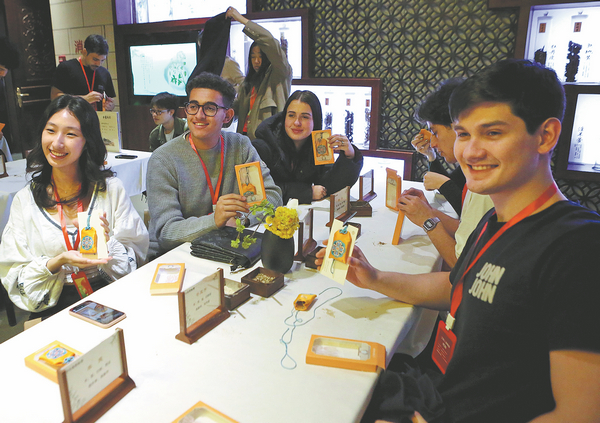
Cultural heritage
In 2011, the craftsmanship of Zhangzhou's Pien Tze Huang was listed as a national intangible cultural heritage. The Pien Tze Huang pill, a Grade-1 protected traditional Chinese medicine, has consistently ranked among the top exports of Chinese medicine.
Mohamed Hesham Elaskary, a young professional from the US working in a medical technology company, says traditional Chinese medicine and Western medicine are complementary and interconnected. He says he hopes for enhanced collaboration between Chinese and foreign medical fields in the future to create better formulas and medications, promoting global health development.
"I got to learn more about Eastern medicine and see how Western and Eastern medicine can complement each other. It was fascinating to see how ancient formulas are being used to create new and more advanced medicines today," he says.
Gao Yuxi contributed to this story.


